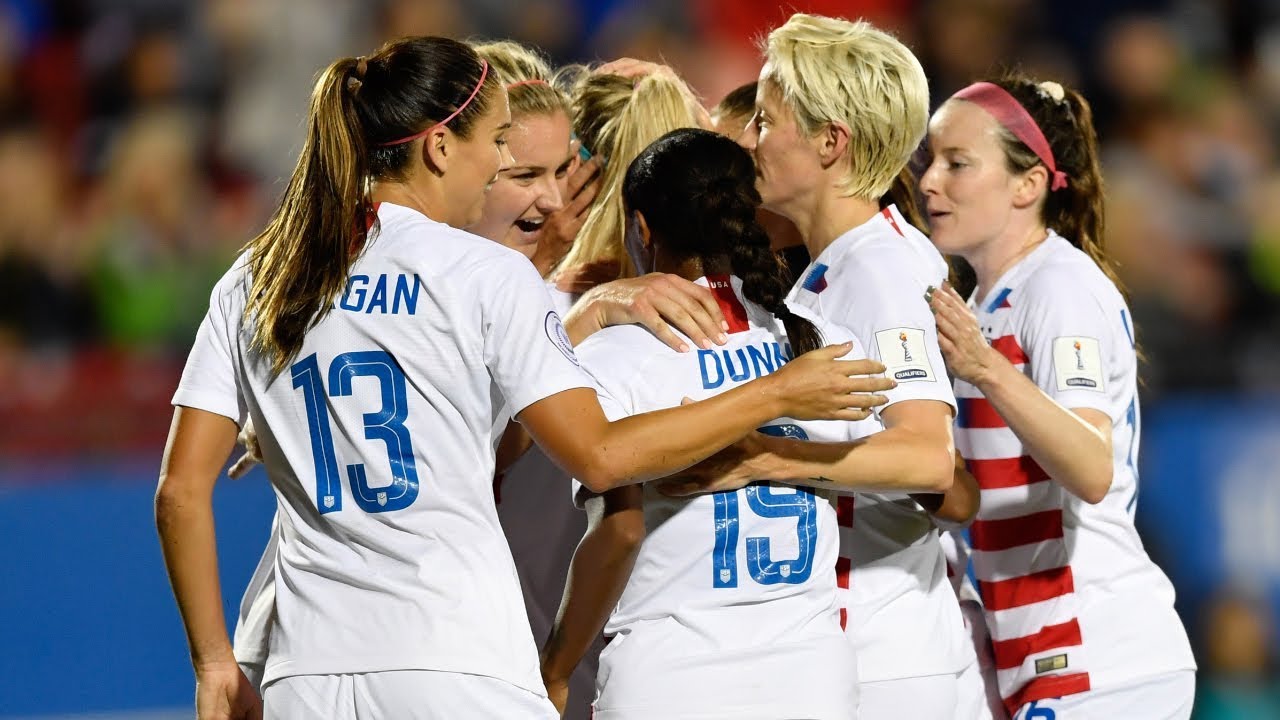There’s no easy way to express how utterly paramount the Women’s U.S. National Team win in the World Cup is. In a tournament that has only existed since 1991, the women’s team has taken home their 4th championship and 8th time placing in the top three.
For comparison, on the men’s side, Brazil, who has the most World Cup wins of any other national team only has five World Cup victories, and has placed nine times. I’d also like to point out that the men have been playing since 1930. In other words, the women’s team has had sixty less years to achieve their victories. Not to take anything away from Brazil’s men’s teams over the years, I just feel that this is a point that must be expressed.
In other words, the Women’s National Team has been arguably more dominant than the most dominant team in the entire men’s league. There is, inherently, a problem with that, especially when you consider that the women’s team doesn’t make nearly as much as the men’s team, a definable instance of the wage gap in America.
It’s worth noting that the men’s U.S. soccer team hasn’t won a single World Cup victory. Now, don’t get me wrong, I don’t mean that as an insult to the men’s teams over the years, but I bring it up to illustrate a point that was echoed through the Parc Olympique Lyonnais in France shortly after the women’s team beat Netherlands 2-0.

The stadium, according to Twitter posts and videos, echoed with the phrase: “Equal Pay!” You see, the women’s team makes roughly a quarter of what the men’s team does. According to a Guardian breakdown of the contracts and bonuses, the average male player could make $1.1 million, whereas their female counterparts top out at roughly $260,000.
This, despite the fact that, from 2016 to 2018 the women’s game brought in $50.8 million, whereas the men’s game brought in $49.9 million. It’s also worth noting that the most watched soccer game in United States history belongs to the 2015 World Cup final, in which the women’s team defeated Japan 5-2. The game garnered 25.4 million viewers.

The women’s team accomplished all of this despite their controversies. Megan Rapinoe, who scored the first goal in the championship match on a penalty kick, drew criticism from the President earlier in the tournament for saying that she wouldn’t go to the White House should they win.
Trump fired back in a series of tweets saying: “Megan should win before she talks! Megan should never disrespect our Country, the White House, or our Flag, especially since so much has been done for her & the team.” He later went on to say that he would invite the team whether they won or lost.
Though, despite Rapinoe and the team winning, in a video interview, the President said, answering whether the team would be invited, “We haven’t really thought about it. We will look into that.”
Rapinoe, who is no stranger to standing up for her beliefs responded to her and her teammates’ willingness to take on more than just other teams, saying:
“We say what we feel. All of us really, I know that my voice sometimes is louder, but in meal rooms, in conversations, everybody is in this together. We are such a proud and strong and defiant group of women.”
With the World Cup won, the Women’s National Team is now taking on a bigger, grander opponent: equal pay.
Emily Martin, vice-president for education and workplace justice at the NWLC (National Women’s Law Center) sees this as a moment, not just for women in sports, but women throughout the entire workforce whose median annual income in $9,909 less than men, according to data from the U.S. Census Bureau.
“This should be seen as connected to the Time’s Up initiative,” said Martin, “where so many women in the entertainment industry and beyond stood up and said, ‘We aren’t going to sit around in the face of inequality anymore. We’re demanding our due.'”
“I think it’s connected to the Me Too movement, where so many individuals shared their stories and said it’s time to really fundamentally change how we treat victims of sexual violence in this country.”
“And it’s connected to the Women’s March, where so many women literally took to the streets to say the status quo isn’t good enough and it’s time for a change.”
“I do think it will inspire individual women to come forward and say, ‘Pay me what you owe me,'” Martin says. “I also think that when you see this kind of high-profile excellence fighting for equal pay, this is an important prompt for lawmakers… both on the state and federal level… to do the same.”
The Women’s National Team has not just made a record breaking win, toppling the world’s best for a dynastic fourth time, but they have also opened up a new conversation on how we view women in sports and women in the workplace.
Richard Foltz
Managing Editor

